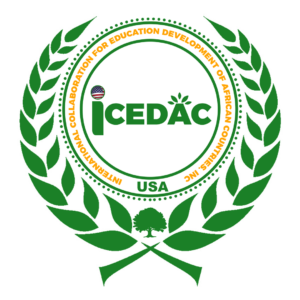OUR VISION FOR SOCIO-ECONOMIC DEVELOPMENT – By Honoré AMOUGOU
“Women carry half the sky”, said Mao Zedong. Think of the women around you: mothers, wives, daughters, sisters, aunts and grandmothers, and you’ll prove him right. But the business world has not yet integrated this reality, which penalizes society as a whole.
One of the main reasons for this is lack of access to capital. Worldwide, over 30% of officially registered companies are owned by women. Yet 70% of small and medium-sized enterprises (SMEs) owned by women in developing countries are either excluded from the formal financial system, or unable to obtain the funds they need.
Whereas in 2014, 65% of men had a bank account, only 58% of women did. This gap of 7 percentage points widens to 9 points in developing countries.
Yet all the available evidence points to the incredible benefits of women’s economic participation for families, communities and countries. Simply giving women the same professional opportunities as men could result in growth gains of up to 34%. And by multiplying the number of women-owned businesses, we also multiply the sources of employment. The goal of eradicating extreme poverty would then be achieved much more quickly.
But this requires a concentrated effort by governments, the private sector, multilateral institutions, the World Bank and national and international organizations to accelerate sustainable economic growth.
It is with this in mind that the international organization ICEDAC USA has taken the initiative of promoting the financing of projects in favor of women, with the aim of making them independent. To achieve this, ICEDAC USA has put in place a strategy to encourage the economic, social and psychological empowerment of women and girls, in order to foster their financial independence, improve relationships between individuals and promote equitable power relations between the sexes within society.
In addition to this strategy, there are a number of interventions that can be deployed with the aim of strengthening women’s life, work and financial skills, and removing obstacles to their social, political and economic inclusion, in order to build networks and collective action. These interventions will aim to strengthen women’s individual and collective capacity to combat inequalities.
Interventions will focus on
– Training for the empowerment of women and girls, including life skills, safe spaces and mentoring: this type of intervention also covers the collective empowerment of marginalized groups of women, such as sex workers);
– Microfinance or savings and loans, with training components on gender and empowerment: this type of intervention adheres to a holistic vision of the empowerment of women and girls, combining activities to strengthen women’s social skills and self-confidence on the one hand, and activities focused on developing their financial knowledge and independence on the other.
– Vocational training for women in entrepreneurship: this type of intervention enables women and girls to enter the business world and become financially independent;
– Financing interesting projects for women and girls who do not have sufficient funds to set up innovative and productive projects.
The implementation of these interventions will focus on:
● Identifying the target population;
● Carrying out formative research on gender role and income norms;
● Ensuring that economic empowerment skills are focused on livelihoods that correspond to local realities;
● The allocation of sufficient time and resources to training and capacity-building for facilitators;
● Assurance that implementing partners have the necessary expertise. – In terms of large-scale deployment, ICEDAC USA aims to:
● Provide the necessary funding and time to ensure that the economic empowerment components are of sufficient intensity and duration to guarantee a significant improvement in women’s economic situation ;
● Integrate education and health components into empowerment interventions to address the complex and multidimensional needs of girls ;
● Plan activities adapted to the realities and constraints experienced by women and girls;
● Provide safe spaces where women and girls can meet, build relationships, share concerns and acquire skills.
